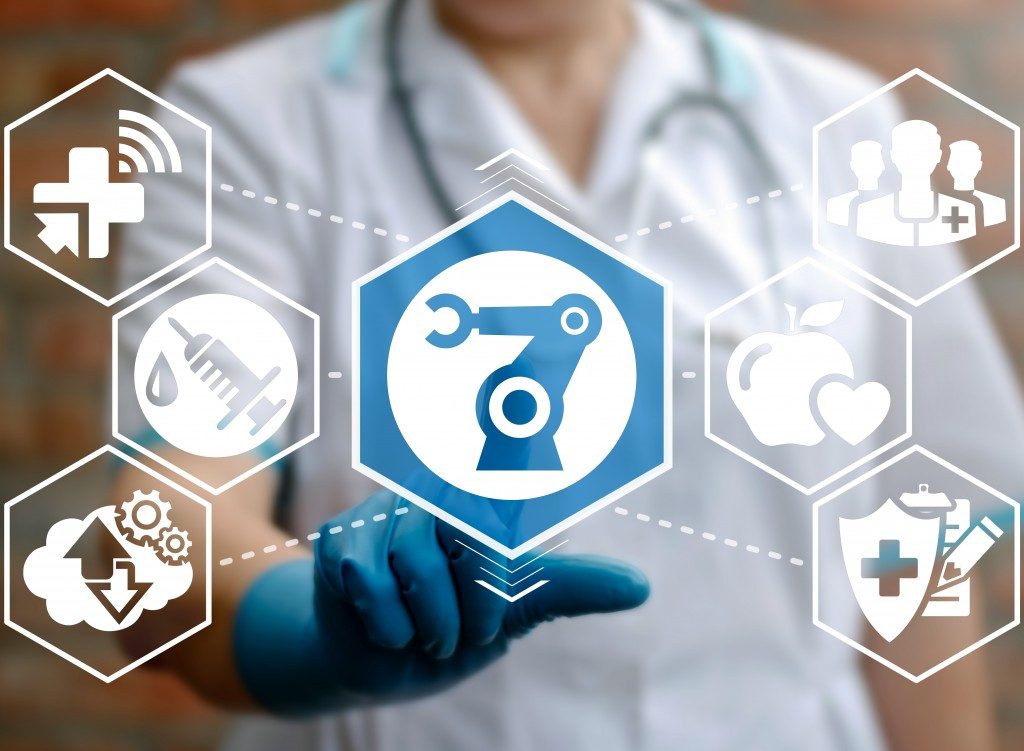The Benefits of the IoT to the Healthcare Industry
Although technology can’t prevent chronic diseases, the IoT makes healthcare more accessible and less expensive, especially for those opting for private healthcare. Technology helps move the routine medical checks from the hospital to the patient’s home, helping them lower the costs of medical diagnostics.
The IoT can also be used to give accurate diagnoses, potentially lessening the need for hospitalisation. And, when a patient is hospitalised, smart technology helps medical centres operate more efficiently so that patients can obtain better treatment.
How the IoT Has Improved Healthcare
Here are some examples of how the IoT has improved the medical field:
Smart Monitoring System for Cancer Patients
A smart monitoring system called CYCORE was tested on over 300 patients receiving treatment for head and neck cancer. The randomised trial used a Bluetooth-enabled blood pressure cuff and a weight scale to track vital information. A symptom tracking app sends updates to physicians on symptoms and responses to treatments.
Connected Inhalers
Inhalers can be equipped with sensors and connected to an app which helps understand what causes asthma, presents allergen forecasts and tracks the use of rescue medication.
Ingestible Sensors
Pills that are ingested and produce a small signal that is picked up by a sensor attached to the body. The data is transmitted to a smartphone app to confirm that the patient has taken their medication.
Smart Glasses
Smart glasses allow surgeons to receive real-time information about a patient while they perform the procedure. They also aid a surgeons’ vision throughout the surgery and pull out solutions to implement should complications occur. Patients can also buy smart glasses to minimise their visual impairment, giving them better vision of their surroundings.
Smart Glucose Monitoring
Certain smart devices help diabetics check their blood glucose levels by conducting readings several times. Some smart devices send information to a smartphone app, allowing the patient and their caregivers to check data and trends.
Concerns about the IoT

Despite the benefits afforded by smart technology to the medical field, there are also some concerns. Privacy and security are the top concerns, given the possibility of hackers breaking into the devices, meddling with their functions and stealing the stored data.
Overreliance on smart technology could also be detrimental to its users and to medical experts, alike. When the device crashes, or when glitches occur in the technology, people will find it difficult to make decisions, unless the information has been documented elsewhere.
The Internet of Things is gradually becoming a big part of our lives and is impacting many fields, including healthcare. Although smart technology brings many benefits, it’s still important to be aware of its limitations so that operations can still run efficiently and effectively.
